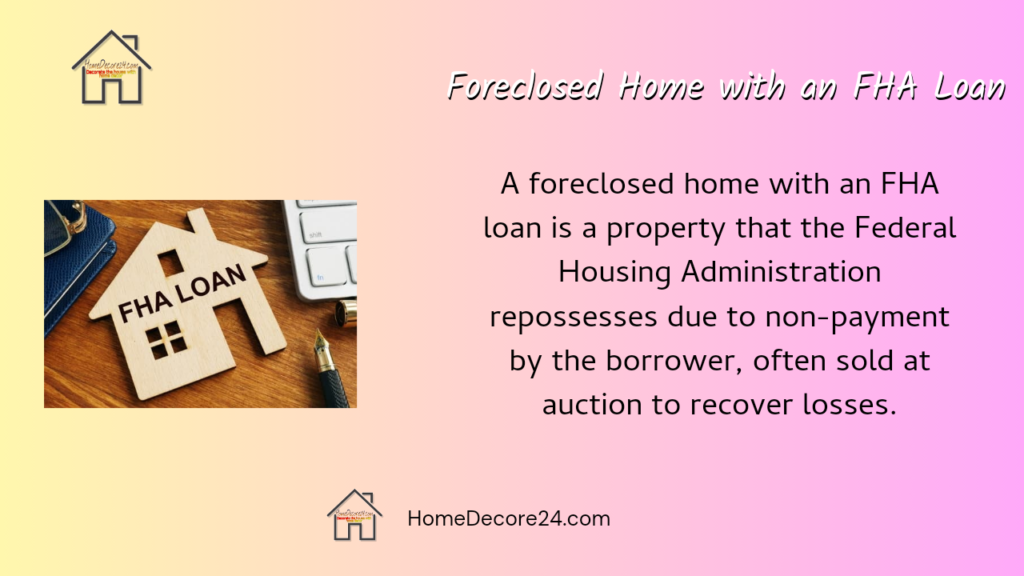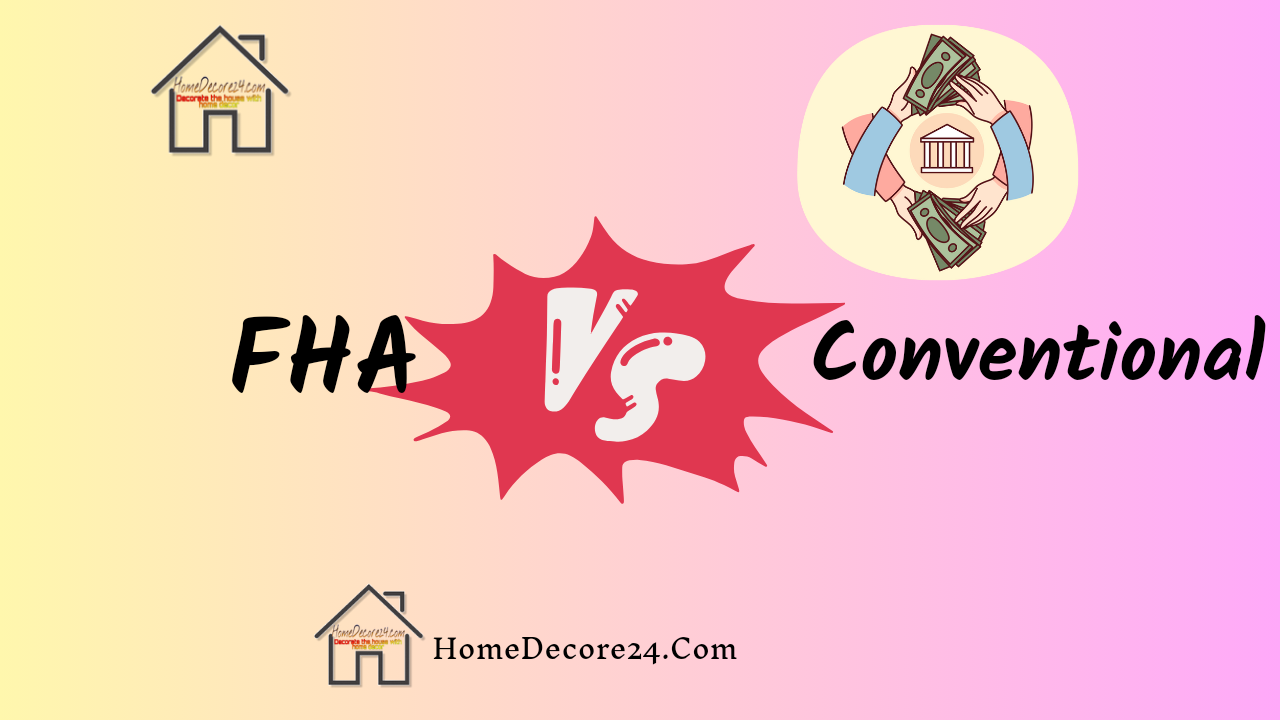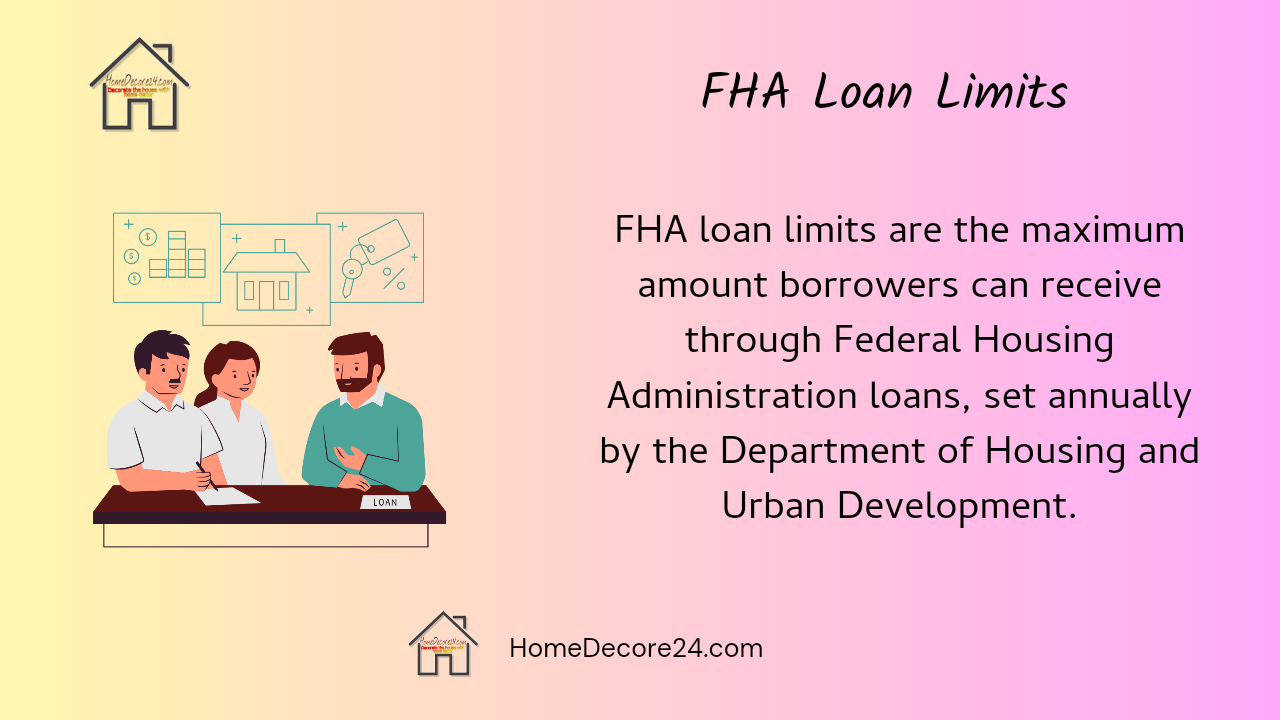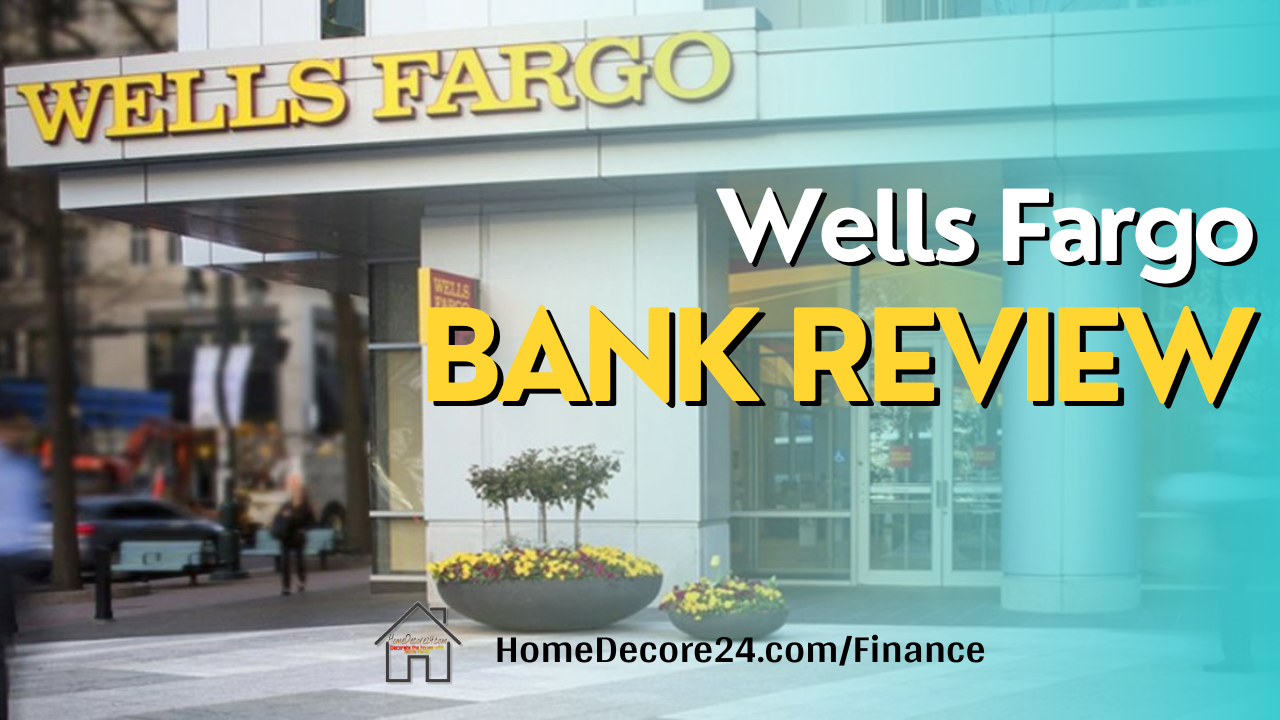
For prospective homebuyers seeking affordable real estate options, foreclosed homes can present a unique opportunity. These properties are typically sold at lower prices due to their distressed status, often making them an attractive choice for buyers on a budget. One financing option available for purchasing foreclosed homes is an FHA loan. In this article, we will delve into the details of how to buy a foreclosed home using an FHA loan, exploring the benefits, eligibility criteria, the purchasing process, and important considerations.
A foreclosed home with an FHA loan is a property that the Federal Housing Administration repossesses due to non-payment by the borrower, often sold at auction to recover losses.
What is an FHA Loan?
An FHA (Federal Housing Administration) loan is a mortgage insured by the Federal Housing Administration, a part of the U.S. Department of Housing and Urban Development (HUD). FHA loans are designed to assist low-to-moderate income borrowers in achieving homeownership by offering more lenient credit requirements and a lower down payment compared to conventional loans.
Read More: Financing Your Airbnb Rental
Benefits of Using an FHA Loan for a Foreclosed Home Purchase
Lower Down Payment: One of the most significant advantages of using an FHA loan to purchase a foreclosed home is the lower down payment requirement. While conventional loans may require a down payment of 20% or more, FHA loans typically require a down payment as low as 3.5%.
Flexible Credit Requirements: FHA loans are more forgiving when it comes to credit scores. Borrowers with lower credit scores may still qualify for an FHA loan, making it accessible to individuals with less-than-perfect credit histories.
Assumable Loans: FHA loans are assumable, meaning that if you sell your home, the buyer can take over your existing FHA loan. This can be an attractive feature when reselling a foreclosed property.
Renovation Financing: FHA 203(k) loans, a subset of FHA loans, allow borrowers to finance both the purchase price of the foreclosed home and the cost of necessary renovations or repairs in a single mortgage.
Eligibility for Using an FHA Loan for a Foreclosed Home Purchase
To qualify for an FHA loan, borrowers must meet certain criteria:
Credit Score: While FHA loans are more lenient with credit scores, a higher credit score will increase your chances of approval and secure better interest rates.
Debt-to-Income Ratio: Borrowers should have a reasonable debt-to-income (DTI) ratio, typically around 43% or lower, to demonstrate their ability to manage mortgage payments alongside other debts.
Down Payment: A minimum down payment of 3.5% of the purchase price is required for most FHA loans.
Steady Income: Lenders will assess your employment history and income stability to ensure that you can meet the mortgage payments.
The Process of Buying a Foreclosed Home with an FHA Loan
Find a Foreclosed Property: Search for foreclosed properties through real estate listings, auctions, or banks that specialize in foreclosure sales.
Get Pre-Approved: Obtain pre-approval for an FHA loan from an FHA-approved lender. Pre-approval strengthens your position as a serious buyer and helps you determine your budget.
Home Inspection: Conduct a thorough home inspection to identify any structural or repair issues. If you plan to use an FHA 203(k) loan for renovations, this step becomes even more critical.
Negotiate and Make an Offer: Negotiate the purchase price with the seller or the bank holding the foreclosed property. Once you reach an agreement, make an offer.
Loan Application: Begin the FHA loan application process with your lender. Provide all necessary documentation, including proof of income, credit history, and the property details.
Appraisal: An FHA-approved appraiser will assess the property’s value to ensure it meets FHA standards and justifies the loan amount.
Loan Approval and Closing: Once your loan is approved, you’ll proceed to the closing process. This involves signing all necessary paperwork, paying closing costs, and finalizing the purchase.
Read More: FHA Lift Funds: Definition and Guidelines
Considerations and Cautionary Notes
Property Condition: Foreclosed homes may require significant repairs. Ensure you factor in renovation costs when budgeting for the purchase.
Competition: Foreclosed properties can attract multiple buyers, leading to competitive bidding. Be prepared to act quickly and make a strong offer.
Loan Limits: FHA loan limits vary by location and property type. Make sure the property’s price falls within the limits for your area.
Mortgage Insurance Premium (MIP): FHA loans require an upfront and ongoing MIP, which increases the overall cost of the loan.
Can FHA loans be used for foreclosure?
Yes, FHA loans can be used to purchase foreclosed homes, offering benefits like lower down payments and flexible credit requirements for eligible borrowers.
Where can I foreclosure for sale?
Foreclosed homes for sale can be found through real estate listings, bank websites, auctions, and specialized foreclosure listing services.
What if the foreclosure doesn’t meet liability standards?
If a foreclosure property doesn’t meet liability standards, prospective buyers might need to address necessary repairs or renovations to bring it up to code before purchasing.
Do sellers avoid FHA loans?
Sellers might avoid FHA loans due to perceived stricter appraisal and inspection requirements, potentially impacting the negotiation process and closing timeline.
How to avoid foreclosure with FHA?
To avoid foreclosure with an FHA loan, communicate with your lender as soon as financial difficulties arise. Explore options like loan modification, refinancing, or repayment plans to find a solution and prevent foreclosure.
YouTube Video
Bottom Line
Buying a foreclosed home with an FHA loan can be an excellent way to enter the housing market, especially for those with limited funds or lower credit scores. However, it’s crucial to thoroughly research both the property and the loan process, working closely with an experienced FHA-approved lender, to ensure a successful and smooth home purchase. By understanding the benefits, eligibility criteria, purchasing process, and potential challenges, you can make informed decisions and turn a distressed property into a valuable investment.
✓ Exploring USDA Guaranteed vs. Direct Loans







